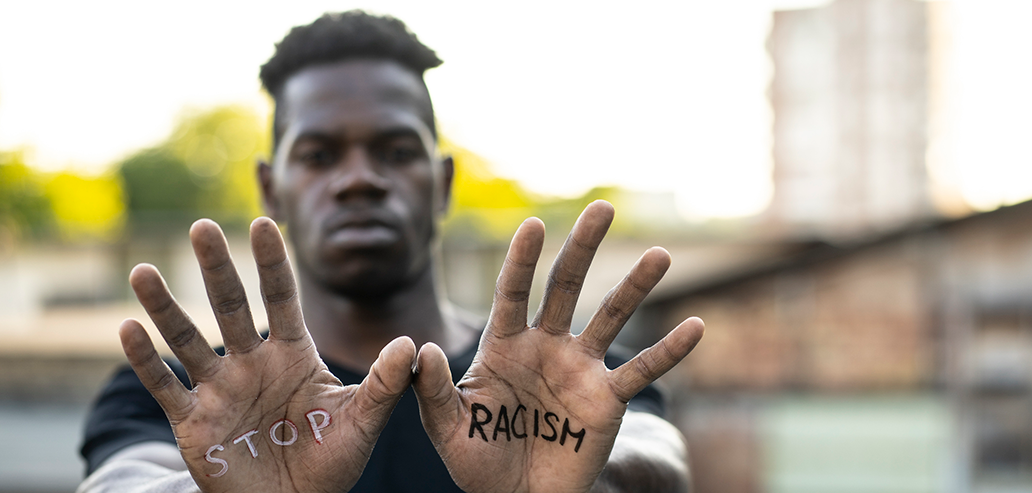We have collected new data among U.S. adults on experiences of bias, discrimination and exclusion by institutions and individuals in the financial services industry. The polling results indicate that a majority (83%) have not experienced bias, discrimination or exclusion, but of those who have, a significant number attribute the reason to their identity or personal circumstances.
“While the high-level results of this survey are positive, the percentage who report feeling ostracized by the financial services sector represent millions and millions of U.S. adults who are unable to participate fairly in the economic system because of their gender, age, race or some other reason tied to socio-economic circumstances,” says Billy Hensley, Ph.D., president and CEO. “Financial institutions should not view their business strategies as a zero-sum situation where one person or group has to lose for another to win. We can create strategies that are inclusive of everyone.”
The full report of our latest poll conducted by AmeriSpeak highlights that 16% of respondents have experienced bias, discrimination or exclusion by or from organizations, institutions or individuals within the financial services sector. In addition, 18% report feeling blocked or discouraged from engaging with financial services or products due to how they are designed, marketed or offered. Several notable distinctions across demographic attributes include:
- Among those who reported negative experiences, the identity attributes that contributed to their experiences were their age (48%), amount of wealth or assets (37%), ethnicity (37%), race (27%), gender identity/expression (23%) and education (23%).
- Adults aged 45-59 years old (38%) and aged 60+ years old (34%) are significantly more likely to report negative experiences due to their race than those aged 30-44 years old (17%).
- Males are more likely than females to experience discrimination or feel blocked due to their ethnicity (males: 47%; females: 31%) and race (males: 37%; females: 21%).
- Females (31%) are more likely to have a negative experience due to their gender identity or expression than males (11%).
- Non-Hispanic Black (67%) and Hispanic (54%) adults are significantly more likely to have had negative experiences due to their ethnicity than non-Hispanic white (8%) adults. Non-Hispanic Black (59%) adults are also more likely to have such experience due to their race than non-Hispanic white (12%) and Hispanic (25%) adults.
In May, we polled LGBTQIA+ community members on similar questions related to bias, discrimination and exclusion experiences. In that poll, nearly twice as many respondents (30%) said they faced bias, discrimination and exclusion by or from organizations, institutions or individuals within the financial services sector and 36% said they felt blocked or discouraged from engaging with financial services and products due to how financial services are designed, marketed or offered.
“Financial institutions should seriously reflect on these survey results. If there is potential to attract quality candidates and customers by amending messages, practices or policies, all institutions should embrace an opportunity to do better,” Hensley says.
For more on this survey, visit the Public Opinion Poll section of our website.
Full Methodology
This survey was conducted May 12-16, 2022, on behalf of NEFE, using the AmeriSpeak Omnibus Panel. The nationally representative sample included 1,001 adults aged 18 and older. Funded and operated by the National Opinion Research Center (NORC) at the University of Chicago, AmeriSpeak® is a probability-based panel designed to be representative of the U.S. household population. Randomly selected U.S. households are sampled using area probability and address-based sampling, with a known, non-zero probability of selection from the NORC National Sample Frame. These sampled households are then contacted by U.S. mail, telephone and field interviewers (face to face). The panel provides sample coverage of approximately 97% of the U.S. household population. Those excluded from the sample include people with P.O. Box only addresses, some addresses not listed in the U.S. Postal Service Delivery Sequence File, and some newly constructed dwellings. While most AmeriSpeak households participate in surveys by web, non-internet households can participate in AmeriSpeak surveys by telephone. Households without conventional internet access but having web access via smartphones are allowed to participate in AmeriSpeak surveys by web. AmeriSpeak panelists participate in NORC studies or studies conducted by NORC on behalf of governmental agencies, academic researchers, and media and commercial organizations.
For more information, email [email protected] or visit AmeriSpeak.norc.org.

